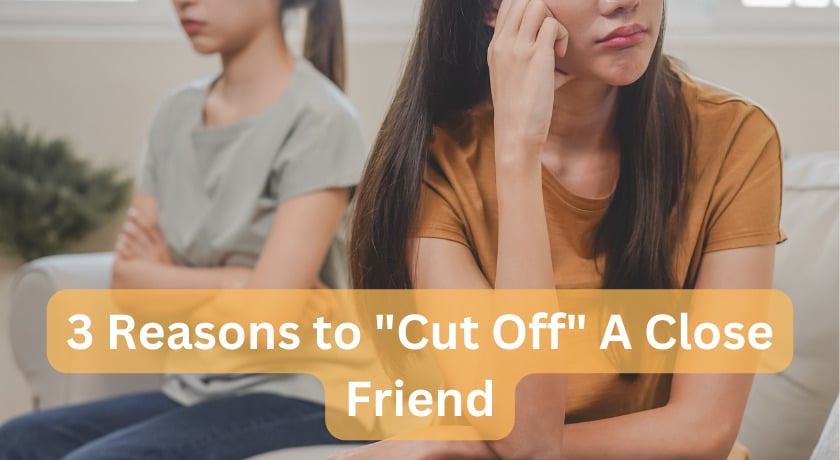The duration of certain friendships can vary greatly for anyone involved in one. Some friendships can last through a time where you really need to lean on that person, like through school or a new job, and then it runs its course. Others may last years before it dwindles because of separation or other life-changing circumstances. For the lucky few, some friendships can last a lifetime.
But when is it time for a particular friendship to end? Here are a few signs you can catch if you’re in a situation where you’re questioning the quality of a friendship.
One-Sided Friendships
In some friendships, you may notice that the other person doesn’t know nearly as much about you as you do them. If you look deeper into why that is, you may recognize that they don’t often spend time talking and wanting to learn about you and what’s going on in your life, rather, they are self-obsessed and only desire to talk about them and their problems.
Psychology Today uses the example of how you should observe the situation when sharing exciting news with a friend.
“Some friends may be genuinely happy for you, while others may react with envy or negativity,” PT points out. “Friends who consistently react with negativity or show little excitement when you share happy news are probably not good for your psychological well-being,” adding, “It’s important to have friends who support and uplift you rather than bring you down.”
The Ability and Allowance to Be Yourself
People become your friends because they like the kind of person you are, and vice versa as to why you become friends with them. So, similarly to how you wouldn’t want them to change or conform to be the kind of person you want them to be, rather you accept them for who they are and want them to continue being who they are, the feeling should be mutual.
You shouldn’t have to hide your feelings or personality traits and identities just to satisfy a friend. You should be able to be who you want to be and who you most authentically are at any given moment.
A study was done on authenticity in friendships, conducted by Petra Kipfelsberger, who urges you to conduct these three behaviors when trying to be your “authentic” self: “reducing self-alienation” (trying to have a good sense of self-identity), “increasing authentic living” (translating your authentic behaviors into how you live your life), and “rejecting external influences” (following your own wants and desires rather than being driven by opinions and wants of others).
Drifting Apart
Not all friendships end because of something negative. Some simply end because it has served its purpose. People and their ways of living are always subject to change, whether life requires them to move away, pursue a different career, or just leave behind certain hobbies or habits, there’s no telling when or if your life and the relationships you’ve built will change.
Jill Whitney, a licensed marriage and family therapist, talked with Insider about why these drifting relationships may end.
“You and a perfectly nice friend can just drift apart,” she said. “You may have been close at one point in your lives, but now your paths have diverged so much that when you get together, it’s awkward.”
She adds that there is still a chance you can save the friendship, but only if you want it to last, saying, “you may decide to invest less time in that friendship instead.”
Sources:



